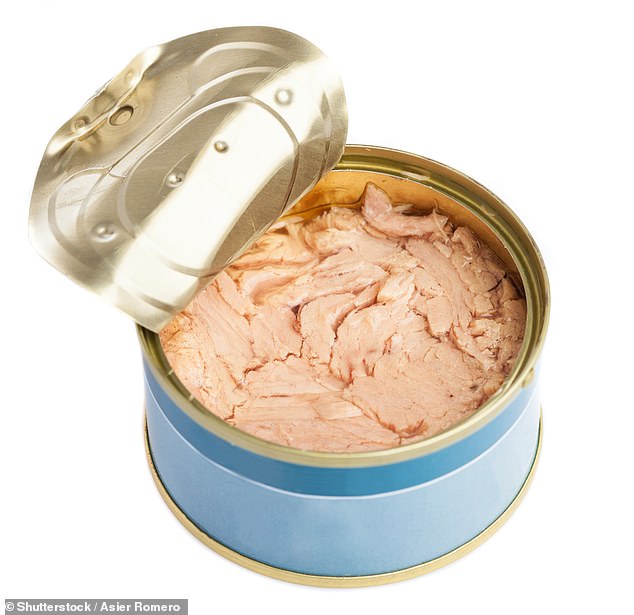Toxic metals could be hidden in cans of canned tuna sold in the UK, alarming research has revealed.
Tests carried out on nearly 150 cans purchased in France, Italy, Spain, Germany and Britain found that all “were contaminated with mercury.”
Exposure to the metal can affect brain development, cause life-threatening lung damage, and has been linked to some cancers.
Researchers said the investigation showed the product posed “a colossal risk to public health” and urged governments to take “urgent” action.
Karine Jacquemart, executive director of consumer rights organization Foodwatch France, one of two groups behind the report, said: “What we end up on our plates is a colossal risk to public health that is not seriously considered.”
“We will not give up until we have a more protective European standard.”
Under current EU and UK laws, the limit for mercury in tuna is 1 mg/kg and 0.3 mg/kg for other fish such as cod.
Foodwatch and the Paris-based NGO Bloom found that all 148 cans tested contained mercury, around 57 percent of which exceeded the 0.3 mg/kg mercury limit.
Tests carried out on nearly 150 cans purchased in France, Italy, Spain, Germany and Britain found that all “were contaminated with mercury.”

Exposure to the metal can affect brain development, cause life-threatening lung damage, and has been linked to some types of cancer.

Researchers said the research showed the product was “a colossal risk to public health” and urged governments to take “urgent” action.
A can purchased at a Carrefour City store in Paris had a record level of 3.9 mg/kg, the report said, 13 times the limit of 0.3 mg/kg.
Bloom and Foodwatch urged European nations to “activate a safeguard clause” to prevent the sale and promotion of products exceeding 0.3 mg/kg.
They also asked governments to remove “all products” with tuna from school cafeterias, daycare centers, maternity wards, hospitals and nursing homes.
The average European consumes more than 2.8 kilos of tuna per year, or approximately 25 cans.
About four-fifths of the mercury released into the atmosphere by natural and human causes, such as burning coal, ends up in the ocean, where some is converted by tiny organisms into a toxic compound known as methylmercury.
This methylmercury moves up the food chain and accumulates in high concentrations in top predators.
Because tuna (and other predators or longer-lived species, such as sharks or swordfish) are higher up the food chain, they eat smaller fish and accumulate more mercury over time.
Exposure to methylmercury can damage the kidneys and nervous system, cause vision problems, and increase the risk of cardiovascular disease.
Pregnant women and children are particularly vulnerable to high levels of methylmercury, according to the World Health Organization (WHO).
Studies have shown that at very high doses, some forms of mercury have caused the development of various types of tumors in rats and mice.
So far, there is no human data linking mercury exposure to cancer, but the data available is limited.


